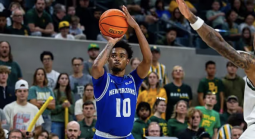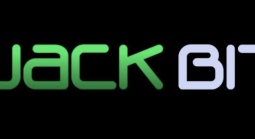One Year After Curacao’s New Gaming Law: Has the Reform Really Worked?
When Curacao passed its new gambling law in late 2024, the headlines were big. The country promised a clean slate. No more shady sublicenses. No more gaps in anti-money laundering. Just one central regulator and full compliance with global standards.
Twelve months later, we are finally in a position to judge whether that bold promise has delivered.
For years, Curacao was known as the “easy entry” jurisdiction in online gaming. Anyone could launch a casino with a basic sublicense. There was no strict KYC enforcement. No direct oversight from the government. And, as many insiders would admit, not much transparency either.
That all changed with the approval of the National Ordinance on Games of Chance, or LOK. This law, passed in December 2024 and implemented in July 2025, officially replaced the old master license system. Instead of four private firms issuing sublicenses, a new state agency, the Curacao Gaming Authority (CGA), now handles everything.
The CGA promised fairness, stronger rules, and real accountability. But change does not come easily in a space that has grown used to minimal checks. So how has the transition worked in practice? And what does it mean for operators and players moving forward?
The End of the Old Way
Before the reform, hundreds of online casinos operated under just four master licenses. These were private companies, not state bodies. They issued sublicenses for a fee and left compliance largely in the hands of the operators themselves.
That system was cheap and fast, which made it appealing to startups. But it lacked international respect. Regulators in Europe and other markets often viewed Curacao casinos with suspicion. And financial partners, like payment processors and banks, were not always eager to work with them.
Under the new law, every gaming business based in Curacao must apply directly to the CGA for a licence. That includes both B2C casinos and B2B providers. There is no more sublicensing. And foreign licences, like those from Anjouan or Kahnawake, can no longer be used by companies operating from Curacao.
This has forced hundreds of operators to reconsider their status. Many are now transitioning to the new CGA licence, while others have left the island entirely.
For players, this change makes it easier to find safe and trustworthy sites. Those who want to gamble with confidence can now choose from verified and properly licensed operators listed under the brand Curacao Online Casinos, where every casino is checked for legitimacy and compliance.
A New Regulator, a New Tone
The shift from the Curacao Gaming Control Board (GCB) to the Curacao Gaming Authority (CGA) is more than just a name change. It represents a change in philosophy.
The CGA has teeth. It sends cease-and-desist letters. It checks Ultimate Beneficial Owners (UBOs). It requires substance, real offices, real staff, inside Curacao. This is no longer a paper license system.
To get a licence today, operators must go through a two-step approval process. First, the CGA reviews the company structure, UBOs, and financial standing. Then it checks compliance systems, responsible gambling tools, and AML frameworks. Each stage takes about eight weeks. There is no skipping the line.
There are also real costs. For a B2C casino, total fees now hover around €52,000 per year. This includes supervisory and treasury fees. B2B providers pay slightly less, but still face a full application process.
Some startups have complained that the fees are too high. Others worry that Curacao is losing its appeal. But the CGA sees this differently. For them, this is not about keeping license numbers high. It is about building long-term credibility.
And after one year, that message is starting to land.
Cleaner Reputation, Stronger Signals
One year in, the new Curacao licence is finally gaining international recognition. Payment processors are taking note. So are banks. So are software providers and affiliates who need reliable partners.
The introduction of AML rules, updated Responsible Gambling frameworks, and new KYC requirements has helped. So has the ban on foreign licences for companies based in Curacao. No more hiding behind paperwork from Tobique or Anjouan. If you operate from the island, you must follow local rules.
The CGA has also started enforcing local staffing rules. Operators must gradually move part of their key teams to Curacao. This helps the local economy and builds real oversight.
That being said, the shift has not been painless. Dozens of casinos have shut down or moved elsewhere. Many were low-quality operations that struggled to meet even the most basic compliance standards. In the long run, this may be a good thing.
The focus now is quality, not quantity. For players, this means fewer scams and better protection. For the market, it means stronger partnerships and more trust.
Not Without Friction
Despite the progress, not everything has gone smoothly. The CGA’s online application portal has faced delays. Some license reviews are still stuck in long queues. And while the CGA has promised more transparency, there is room for improvement in communication.
There is also concern that Curacao’s higher costs may drive some honest operators to cheaper jurisdictions. Licences from Anjouan or Nevis remain attractive for small companies with tight budgets. These licences cost less and often skip the full compliance stack.
Still, most serious operators know the risks. Working under a weak licence may save money in the short term, but it can hurt business in the long run. Players want trust. Partners want transparency. And more regulators are starting to blacklist soft-licensed casinos.
For mid-sized and growing platforms, the CGA model offers a better balance. The rules are clear. The regulator is engaged. And the brand value of being CGA-licensed is growing.
What’s Next?
Looking ahead, the CGA plans to open new application windows in 2025. B2C licensing resumed in March, and B2B licensing is expected by mid-year.
They are also rolling out technical standards, local hardware rules, and new training requirements. The goal is to make Curacao not just compliant, but competitive with top-tier jurisdictions like Malta or the Isle of Man.
There is also talk of more collaboration with Dutch authorities and other European regulators. If that happens, Curacao casinos could soon gain smoother access to key markets.
But the biggest signal of success may not come from the regulators at all. It will come from the players.
When players trust the platform, deposits go up. When casinos offer fair games, fast withdrawals, and clear licensing? Players stay.
Final Thoughts
One year ago, Curacao took a gamble on its own future. It scrapped its easy-entry system, cleaned up its act, and built something better.
Not everyone liked the change. Some left. Some failed to adapt. But the ones that stayed? They are now part of a stronger, safer, and more respected gaming environment.
The CGA still has work to do. But the foundation is solid. And if the past year is any guide, the next twelve months could be even better.
For operators, the message is clear: adapt or move on. For players, it means more trust and better options. And for the industry as a whole, Curacao is no longer just the “cheap licence island.”
It is becoming something much more serious. Something real.
- B.E. Delmer, Gambling911.com













